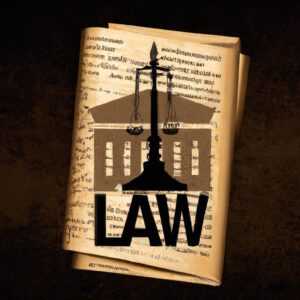
can you file a will before death
Filing a will before death is possible, but it comes with its own set of laws and regulations. Planning ahead can ensure your wishes are carried out smoothly when the time comes.
Estate Law New York Page 37

Filing a will before death is possible, but it comes with its own set of laws and regulations. Planning ahead can ensure your wishes are carried out smoothly when the time comes.

A spendthrift trust is a legal arrangement that allows a trustee to manage and distribute assets to a beneficiary in a way that protects the assets from the beneficiary’s creditors and prevents the beneficiary from spending recklessly.

Trust is the foundation of any successful relationship, but what exactly makes up this elusive concept? The 7 elements of trust are honesty, reliability, transparency, consistency, vulnerability, empathy, and accountability. Each piece plays a crucial role in building and maintaining trust between individuals.

A trusted will is a legal document that outlines a person’s wishes for their estate and assets after they pass away. It ensures that their final wishes are carried out and provides peace of mind for both the individual and their loved ones.

When a loved one passes away, their estate may be subject to creditor claims. This process ensures that debts owed by the deceased are paid before any assets are distributed to beneficiaries. Understanding creditor claims against an estate is essential for navigating the complex world of probate and inheritance.

Are you navigating the complex world of estate accounts? One important step is obtaining an Employer Identification Number (EIN). This article will guide you through the process of getting an EIN for an estate account, making it easier to manage assets and finances.

When planning for the future, a transfer on death document can be a valuable tool to ensure your assets are distributed according to your wishes. This legal document allows you to designate beneficiaries for your accounts, making the transfer process smoother and less stressful for your loved ones.

Discovering the deed to a property can unlock a wealth of information about its history and ownership. Whether tucked away in old records or stored digitally, the deed holds the key to understanding the past of a piece of land.

A trust fund kid is often stereotyped as a wealthy, entitled individual who benefits from a sizable inheritance. However, not all trust fund kids fit this narrative. Let’s explore the truth behind the label and debunk the myths surrounding trust fund kids.

Trust is a key element in any relationship, but at what net worth should you truly have trust in someone? Whether you’re a millionaire or just starting out, the value of trust remains priceless. Let’s explore how net worth and trust intersect in our lives.

Refinancing an inherited property can provide financial relief and help beneficiaries secure a better mortgage rate. However, it’s important to carefully consider the legal and financial implications before making a decision.

Discovering the percentage that probate takes can be confusing for many. To unravel the mystery, it’s important to understand the factors that determine the final amount.

When a trustee dies, the administration of trust assets can become complicated. It is essential to have a plan in place to ensure a smooth transition and to protect the interests of beneficiaries.

Learn how to create a trust and protect your assets for future generations. Discover the steps to establish a trust and ensure your loved ones are taken care of.

Estate sales typically take a percentage ranging from 25% to 50% of the total sales. Factors such as location, size of the estate, and services provided can impact the percentage.

Discovering that a loved one’s will is invalid can be a confusing and overwhelming experience. Understanding the reasons behind invalid wills can help navigate the complicated process of sorting out an estate.

Looking to transfer property quickly? Learn how to do a quick deed in just a few simple steps. Cut through the red tape and streamline the process for a smooth and efficient transaction.

Offering condolences for an unexpected death can be challenging. Finding the right words to comfort grieving loved ones requires sensitivity and thoughtfulness. Here are some tips on how to express your sympathy during such difficult times.

When an estate is not settled, family disputes can arise and assets may remain tied up indefinitely. The deceased’s wishes may not be honored, causing tension among loved ones. It is crucial to take timely action to avoid these outcomes.

As our loved ones age, the decision to move into a nursing home may arise. To protect your house from being taken due to long-term care costs, consider speaking with an estate planning attorney to explore options such as transferring ownership or setting up a trust.

Curious about whether an executor of a will gets paid? Here’s the lowdown on what compensation may be available and the responsibilities that come with the role.

Contesting a will can be a complex process fraught with legal hurdles and emotional turmoil. However, with the right legal guidance and strong evidence, it is possible to challenge the validity of a will in court.

A letter of testamentary is a legal document that grants someone the authority to manage the estate of a deceased person. It is an important tool in the probate process, ensuring that the deceased’s assets are distributed according to their wishes.

When it comes to removing a name from the deeds of a house, it is important to carefully consider the legal and financial implications. Whether due to a divorce, inheritance or other circumstances, this process requires careful attention to detail and may involve legal assistance.

When writing your will, it’s important to remember that certain items should never be included. Avoid putting conditions on gifts, illegal requests, or personal messages that could cause contention among your loved ones. Remember, a will is a legal document, so be sure to keep it clear and concise.

Choosing the right estate planning attorney is crucial for ensuring your final wishes are carried out smoothly. Consider experience, reputation, and communication style when making this important decision.

When a loved one passes away, the question of whether you need to open an estate may arise. Understanding the legal requirements and implications can help navigate the complex process of settling their affairs.

A codicil is a powerful legal document that allows changes to be made to a will without having to rewrite the entire document. Learn more about how a codicil can help ensure your final wishes are truly followed.

Unlocking the mysteries of estate administration, a letter testamentary is a powerful legal document granting authority to a designated individual to handle a deceased person’s assets and debts. Let’s delve into the importance and implications of this crucial document.

Changing a will without a lawyer can be a daunting task, but with the right guidance, it is possible. Understanding the legal requirements and procedures is key to ensuring your wishes are accurately reflected in your updated will.